And relax. Enjoy the respite. You’ve certainly earned it.
BMW-land has of late been an exhausting kaleidoscope of odd contours, oversized grilles, transverse engines, endless crossovers, mass, girth and, although it’s quite understandable, widespread electrification and the compromises that brings. Buy an iX and you get the full house. It’s a BMW, but it’s not a BMW. Do they even make those any more, for those of us who can’t stretch to an M5 CS?
Turns out they do. One look at the new G42-gen BMW 2 Series Coupé’s monolithic bonnet tells you that not only does this car possess an engine but also it’s set lengthways rather than sideways. And the car is therefore natively rear driven.
Elsewhere, the silhouette is clean, the kidneys are right-sized, and there is of course the two-door form, which feels an increasingly rare thing in today’s world. It’s no exaggeration to say that all of this comes as an enormous relief, because for a while there, we thought the understated non-M driver’s Beemer was lost to us.
To explain: in 2019, eyebrows were raised following the decision to move the rear-driven BMW 1 Series hatchback onto a front-drive platform. A year later, that discomfort morphed into a distinct jitteriness when the BMW 2 Series Gran Coupé arrived with the same underpinnings. And with the subsequent announcement of the BMW 2 Series Active Tourer MPV, things looked grim.
It seemed the two-door Coupé could be about to follow suit and ditch the layout of Ferrari, Aston Martin and almost every great BMW for one favoured by modern Volkswagen and Vauxhall. And make no mistake: for the last outpost of affordable, thoroughbred BMW-ness (because, let’s face it, the gawky BMW 4 Series is no longer that car), it would be better to just kill the 2 Series Coupé off. And the worst thing? Had that happened, nobody would have been that surprised.
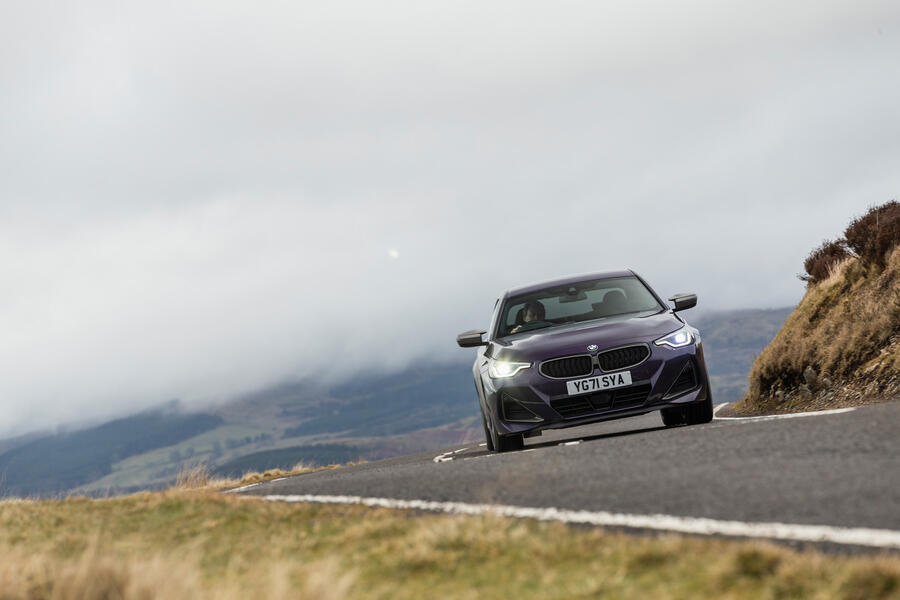
So, welcome to the respite. In this instance, it comes in the form of the £45,795 M240i xDrive – the top-billing 2 Series until the BMW M2 arrives later this year as M division’s 50th birthday present to itself.
Unlike those frumpier bodystyles in the 2 Series range, the Coupé is built on the same CLAR platform as the 4 Series and is therefore more purist in its hardware. CLAR also permits the 368bhp straight-six turbo engine that instantly cements the M240i as an enticing, old-school proposition. (Four-cylinder options exist lower down the range.)
Caveats? The car is available only with four-wheel drive and an automatic gearbox. However, early exposure suggests these elements serve more to infuse the M240i with added all-weather, junior GT-car appeal than to detract from its attributes as an enjoyable and sound driver’s car.
This example is otherwise mechanically standard. It wears 19in wheels with Pirelli P Zero tyres (Pro Pack cars are fitted with Michelin Pilot Sport 4S tyres) and uses the regular two-mode M Sport suspension rather than the £500 M Adaptive set-up. An electronically controlled M Sport differential and beefy M Sport front seats come as standard in the UK.
How good is it? To find out, we’ve brought this one – daubed in Thunderlight metallic, a deep shade of purple redolent of the fabulous Techno Violet that first appeared on the E36-gen BMW 3 Series Coupé – to Snowdonia, along with two key rivals.
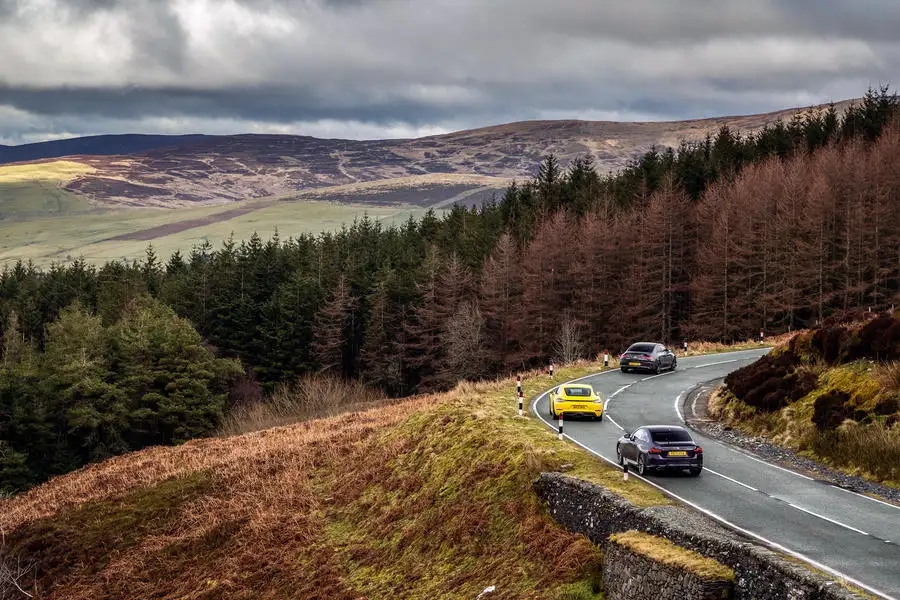
One is the Porsche 718 Cayman, which in entry-level form costs almost exactly what the BMW does. You therefore cannot buy one of these cars without considering the other.
The final member of our trio is the Mercedes-AMG CLA 45 S. In Plus trim, it costs a not inconsequential amount more than the Porsche and the BMW but it’s the most impressive and carefully conceived non-V8 AMG there has ever been so, if nothing else, it deserves to be here to better frame BMW’s efforts.
Having driven here from London this morning in the supernova-bright Porsche, the first few runs in the M240i over one of our favourite testing roads immediately highlight two things.
First, the BMW is fantastically refined. Its cabin, modelled on that of the 4 Series, is both interesting to look at and very tightly screwed together. Factor in the fine driving position, still a brand hallmark, and an expansive view over the power-domed bonnet and this is a comfortable and vaguely romantic place to spend day-long drives. And so quiet. Too quiet, perhaps.
The 718 Cayman is lower and smaller and puts you at the coalface of progress. In terms of isolation, it’s closer to the retired Lotus Exige than it is to the BMW: more trying but also more enlivening for it. Could the M240i be too cultured for a punchy sports coupé?
Second, and related, the BMW feels a touch tubby. Mainly because it is. With four-wheel drive and a ZF-supplied eight-speed torque-converter automatic, for which the lowest three ratios have been squeezed together and whose shift quality is now exquisitely crisp, it weighs 1690kg. If that looks a big number on the page, context does it no help at all. When this car’s M235i xDrive predecessor broke cover in 2014, it weighed 1525kg. Even the M4 Competition of the last generation weighed only 1595kg, and that car carried an additional turbocharger and had a bigger footprint.
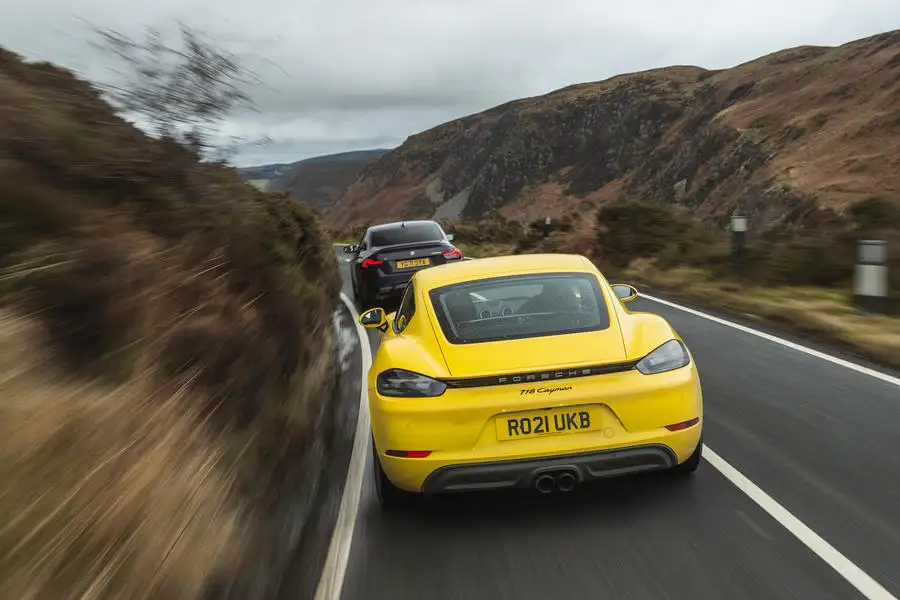
The Porsche, this one with a heavy dual-clutch ’box, tips the scales at 1365kg and the mad Merc – all four doors, torque-vectoring clutch packs, front driveshafts, 20in wheels and dual-clutch gearbox of it – comes in just 5kg heavier than the M240i. BMW talks about weight-minimising wheel bearings and the broad use of aluminium in the suspension and body, which is fine, but this is an unacceptably heavy car.
Knowing just how much weight is involved makes the manner in which this car does point to point all the more sensational. Direction changes don’t unfold in perfect simpatico between the axles, as they do with the Cayman, but the M240i cuts an effortlessly cohesive figure all the same.
You would hope for the upcoming M2 to be more chuckable – to feel a touch less nose led, higher voltage on turn-in and with more iron-fisted rear-axle damping mid-corner – but that car’s M-lite understudy isn’t imprecise or flabby. It’s accurate and composed.
And if not thrown, the M240i at least seems to like being abruptly poured in to bends, where both ends load up quickly and the heavily rear-biased power delivery and throttle-on adjustability can be enjoyed.
Of the two damper modes, Comfort provides enough control for all but the most challenging roads, where you might go to Sport. Either way, there’s finesse and flow in the body movements and this goes some way to making up for the shortfall in confidence imparted by muscularly weighted but mainly numb electrically assisted steering.
The overall experience is more scaled-down super-saloon than light, lithe sports coupé – maybe not quite what you’re looking for in this class, but fierce and satisfying all the same.
And the performance. Just wow. The upshot of BMW’s reworking of the trusty 3.0-litre B58 straight six is that between 1900rpm and 6500rpm, there’s only a brief 500rpm interlude when you’re not being fed either all 368bhp or all 369lb ft. Thrust is monstrous by any standards, upshifts mere flickers of interruption (downshifts are more fleeting still), and traction is genuinely challenging to comprehend.
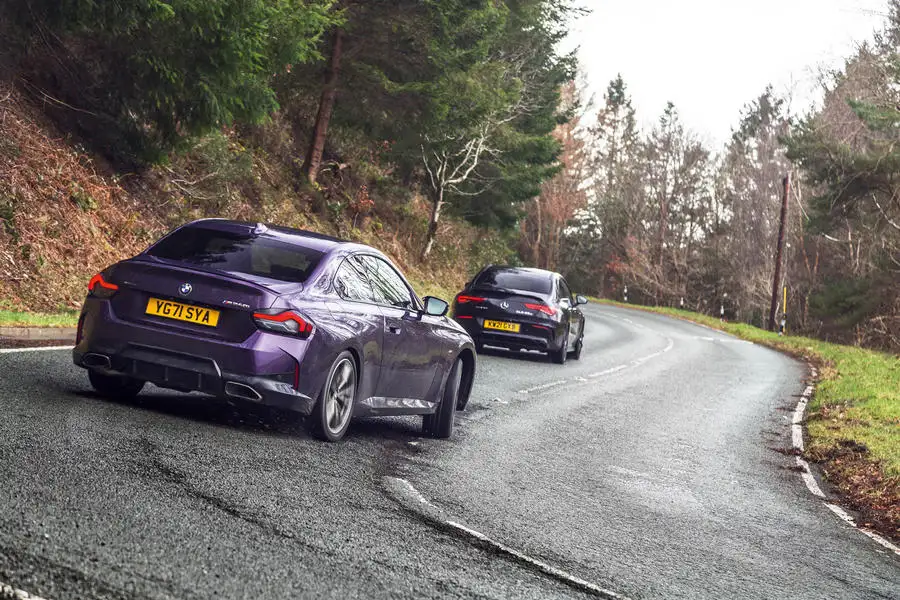
If there’s one thing they’ve really succeeded with here, it’s the way in which the tyres can quite easily be unstuck mid-corner if so desired, yet once you’re on the way out and on to the next straight, the stability is immense. They’ve judged the M240i’s limits very nicely in this regard. I don’t know many cars that so instinctively know when to doggedly grip or dutifully slip, and while the xDrive system is effective, there’s surely some wickedly clever ESP tuning going on behind the scenes.
As for sound, there are synthetic elements, and perhaps the engine feels a little too remote, but you won’t find anything else so richly layered or shapely at this price.
Certainly not in the Porsche. Both the CLA and the 718 Cayman throw the BMW’s strengths and weaknesses into useful relief, but it’s the Porsche that matters more in this contest because of its price and rear-driven layout. In truth, it probably loses more than it wins against the BMW, but where it does win, it wins big (more on which shortly).
The 296bhp flat four in this basic model sounds plain agricultural after the M240i’s six. It plods at idle and revs in hollow, laboured fashion, and the ratios of the seven-speed PDK ’box are too long for the power and torque outputs to ever get properly atop even the Cayman’s low mass. It’s a tool in the truest sense, whereas the engine in the BMW is arguably the main course.
And while this example has the lovely, minimalist little GT sports steering wheel, the standard seats are too short and weakly bolstered after the chunky, deep items in the M240i (again, very super-saloon). Road roar, cabin technology, visibility: all inferior to the new BMW.
But you’re not really paying much attention to those trivialities, because even pulling out of the lay-by, the steering’s already talking to you in a way that’s alien to the BMW and it feels divine. This rack is lower on assistance, lower on elasticity, perhaps a little less direct but laced with genuine feel and weight. By 30mph, it’s already dreamy and it only gets better as forces build, when the deftness of the chassis comes to the fore.
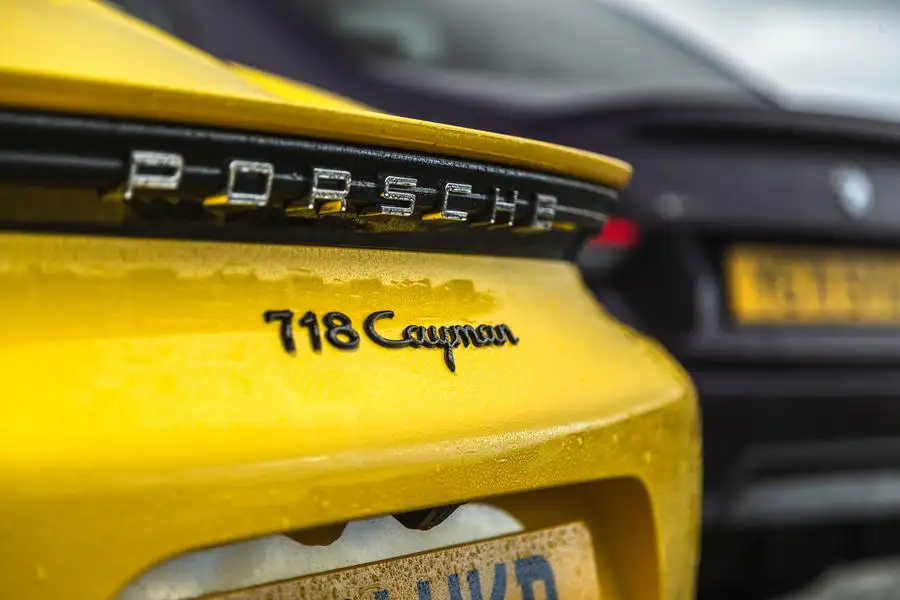
As mentioned, the engine is only really any good for maintaining momentum, despite the fact that it revs higher than the BMW’s, but maintaining momentum is a joy in this Porsche.
Even through very faint changes in heading, with close to no weight transfer side to side, you can sense the deftness with which the suspension takes up load. A degree or two of roll here and there, beautifully cushioned. It’s so sophisticated, and no matter the corner profile, both outside wheels share the burden equally, where the BMW would initially lean on its front axle more and then shuffle it backwards.
In short order, the Porsche becomes ridiculously intuitive. The BMW is dependable and true, but those downhill, off-camber bends with the little stream of water just inside the white line, and the big ditch just inches to the outside, and oh that’s tightening earlier than it looked – you know the ones – are spliced through with nary a lift when the M240i would have demanded a dab of brakes and a break in the flow.
People tend to think the Porsche 911 Turbo is the wet-weather king and ultimate tool for sight reading exciting back roads, but in truth, a basic Cayman is what you want because it’s smaller, more organic and more transparent in its movements. This one is fitted with the optional £926 torque-vectoring and mechanical limited-slip differential and I think that’s all you would need.
The car speaks the language of almost imperceptible adjustments, which is why, even on unfamiliar roads, you find yourself setting the steering angle on the way in to bends and miraculously never needing to make changes throughout the duration of the corner. This happens a lot in the Porsche, but rarely in the others.

I leave the Mercedes-AMG until last, for the same reason you would leave tequila-drenched chocolate Guinness cake until after the sea bass carpaccio. What an obscene creation this is.
Slide aboard and you’ll find the supercar-grade buckets are mounted high compared with the others and the pervading feeling is one of having your nose pressed up against the windscreen. The car is showing its hatchback roots here. Doesn’t last, mind.
The M139 2.0-litre engine – rotated 180deg so that the turbo faces backwards and the intake manifold faces forwards, for better cooling and less lag – makes no less than 416bhp and it’s breathy, racy and thuggishly potent.
Those who love the M240i for its GT qualities will be disappointed, as will the Porschephiles who prize the Cayman’s telepathic dexterity. The AMG is brash and locked down. No nonsense but, at the same time, pure nonsense.
It’s an exercise in technical prowess and it’s impossible not to be blown away by, in no particular order, the sensationally flat body control, the light, sharp steering, the wild speed of the thing, the surprising playfulness that the clever rear axle engenders and the security underwheel.
How does it all feel? Imagine crossing an old Subaru Impreza Turbo with any recent Audi R8 and you’re almost there. However, it does occur to me that, unless you’re driving at escape velocity, the 45 is just another CLA. Divergent they may be in their charms, but the Porsche and BMW feel special at all speeds, and particularly the little yellow one. Speed isn’t everything.
Who wins? Let’s put it like this: seven out of 10 people would be happiest with the M240i. This new generation has opulently long legs but won’t let you down on those right road, right time occasions. It’s an unusually coherent and capable device that will rotate around your hips one moment but blitz 250-mile drives without fuss. Is it a little too aloof for a junior BMW offering with that hint of M in the make-up? Undoubtedly, but still, compelling overall.
Two of those 10 will have the Porsche and will adore its finesse and feel. For them, nothing else will do, and the paucity of firepower and lack of refinement are worthwhile sacrifices. It is a thoroughbred sports car, whereas the M240i merely moonlights, this G42-generation car being far more GT in character than its predecessor, and with too little dynamic contrast to fast versions of the 4 Series and possibly even the 6 Series (really). The Porsche is flawed but unmistakable; the BMW excellent but almost generically so. Food for thought in Munich.
And the AMG? That’s for your one in 10, or perhaps one in 100. It’s for the headbangers, whose commitment to going warp speed I can admire but can’t quite buy into, especially at nigh on £60,000. In my book, it comes third, behind the Porsche and the BMW.
The results
3rd place: Mercedes-AMG CLA 45 S 4Matic+ Coupe
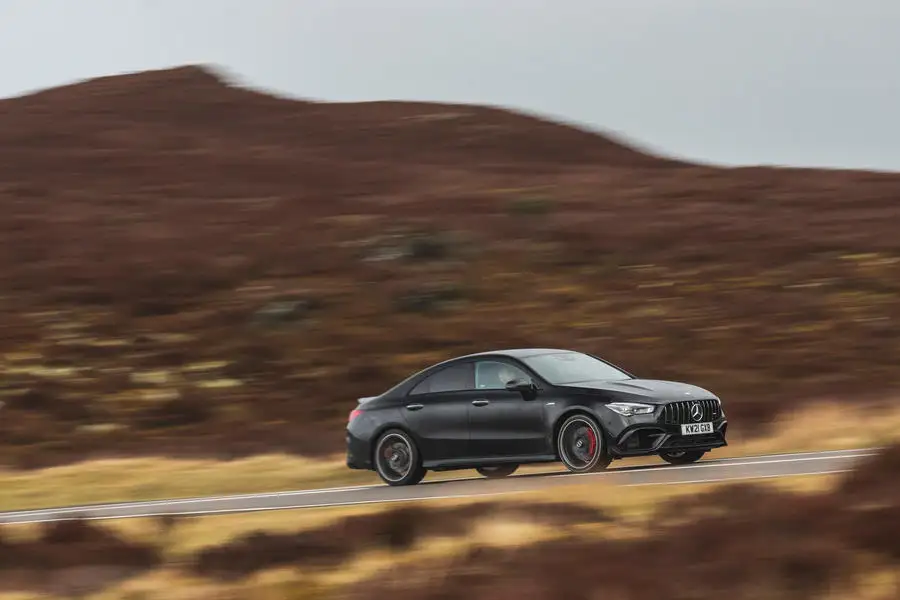
“An exhibition in terms of cross-country pace. Wildly exciting compared with any Golf R but a little one-dimensional in this company.”
2nd place: BMW M240i xDrive Coupe
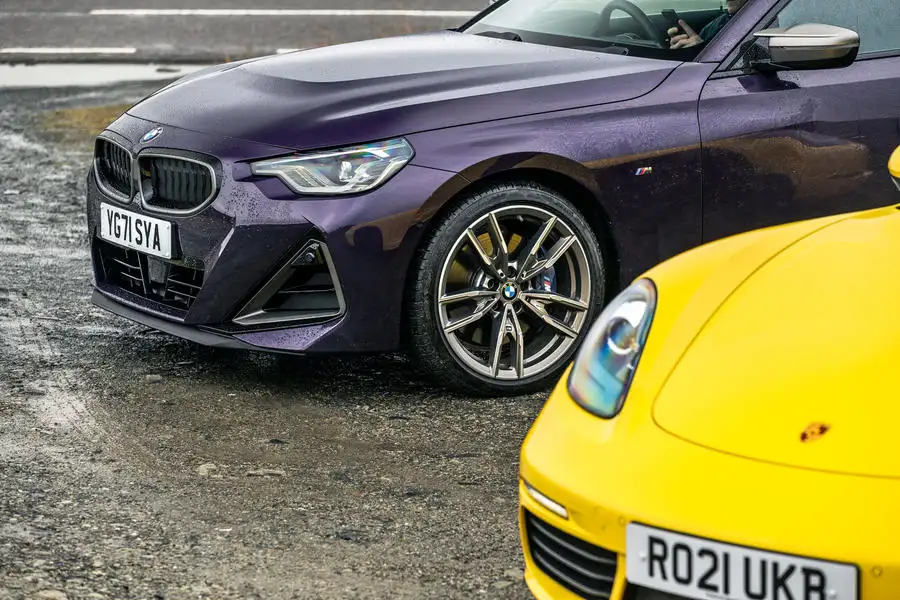
“Latest hot 2 Series ramps up the refinement and the performance but is playful in the right circumstances. Exceptional everyday choice.”
1st place: Porsche 718 Cayman PDK
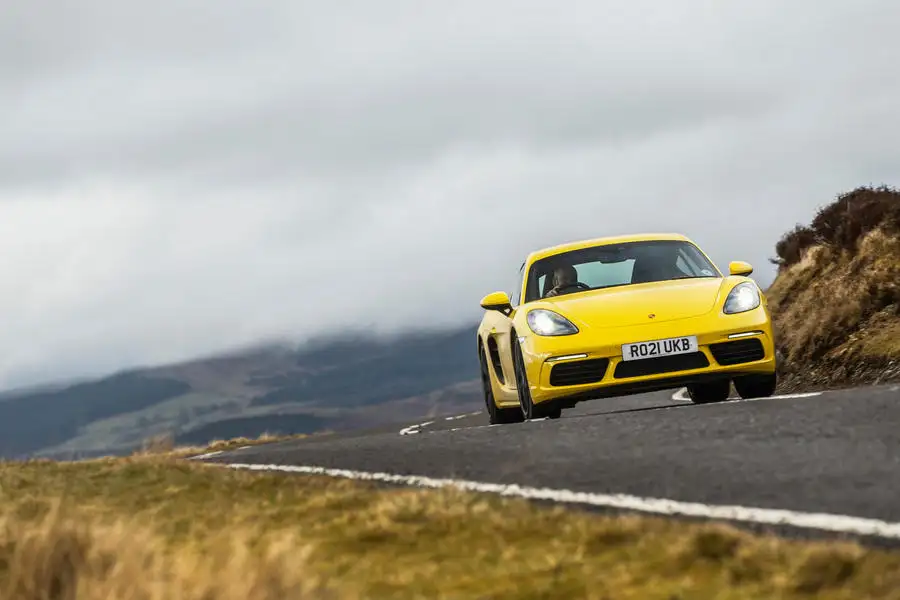
“Lacks the BMW’s versatility and not simply because of its diddy dimensions. It’s hardly spartan, though, and takes the driver places the others can’t. “
Half-price heroes
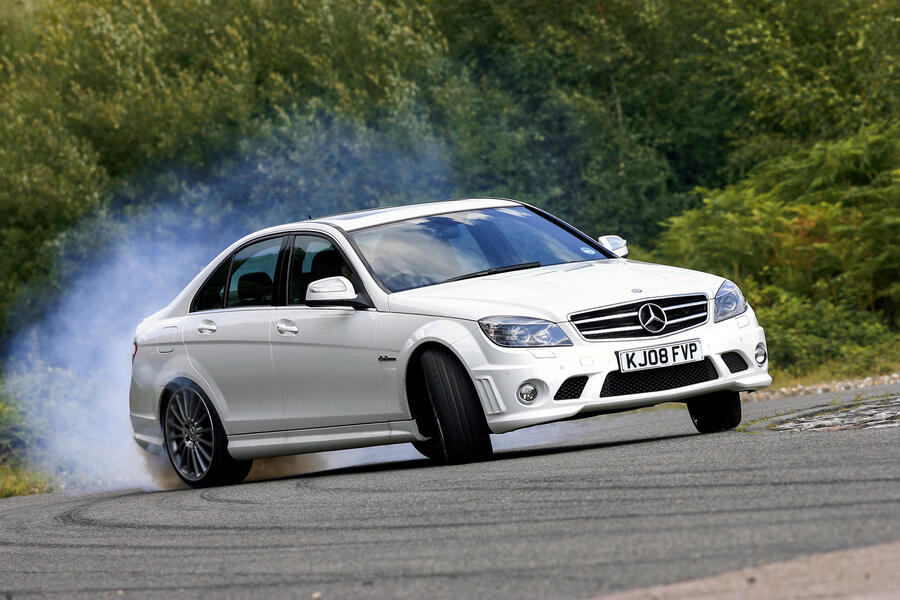
Mercedes-Benz C63 AMG: AMG’s 6.2-litre M156 V8 is one of the great road car engines and the W204 C-Class chassis an excellent match for it. Not cheap to run, but now priced from around £18,000. It’s hard to imagine a more versatile, entertaining coupé at that price.
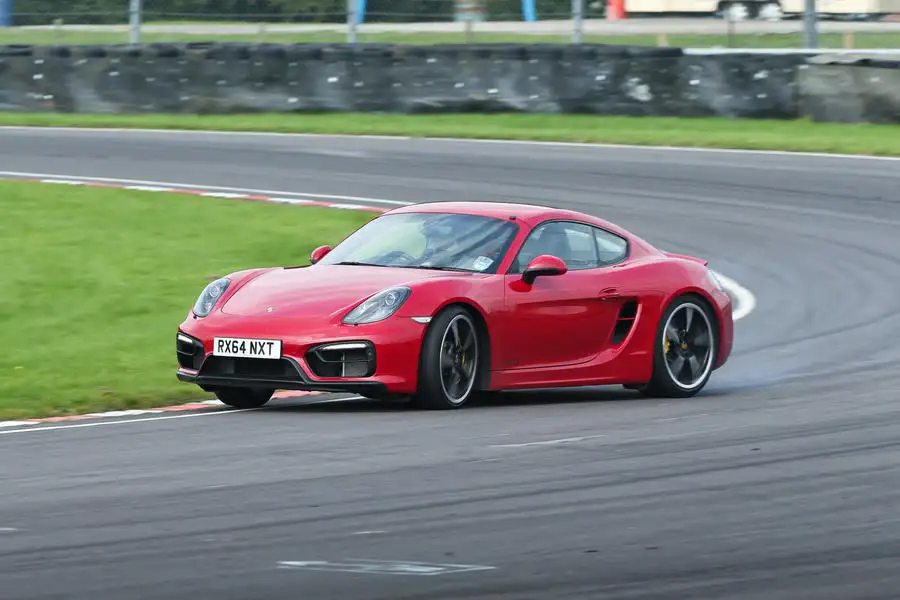
Porsche Cayman S: Around £25,000 buys the best of the late 987-gen Caymans with the post-facelift 3.4-litre flat six, so the same power as our base 718 but a far more musical delivery. A touch more gets a higher-mileage example of its 981-gen successor, mind.
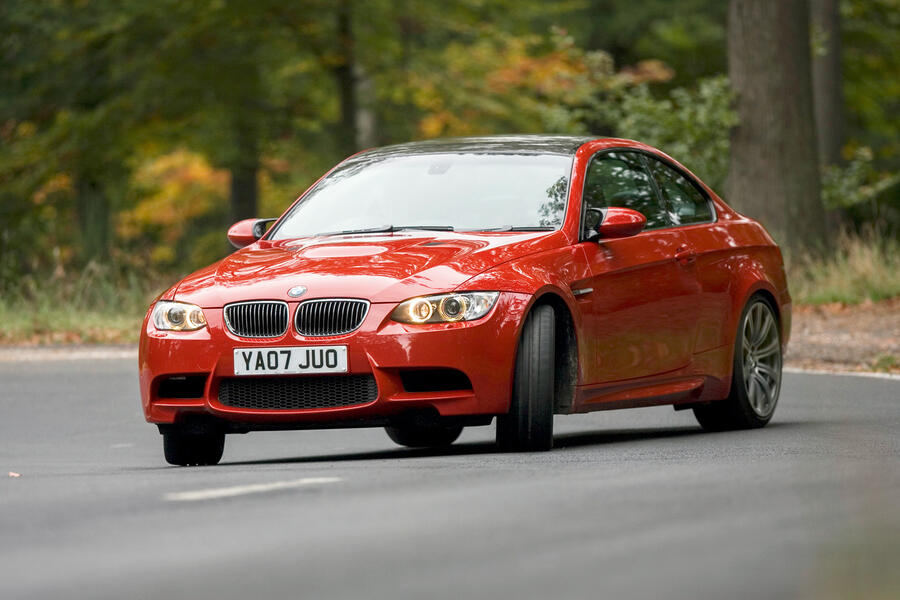
BMW M3 E92: The only M3 road car ever to tout eight cylinders, the E90 is a lazier proposition than the E46 that preceded it (the two generations are now similarly priced), but this makes it an appealing GT-cum-sports car.
Used cars for sale
https://news.google.com/__i/rss/rd/articles/CBMiX2h0dHBzOi8vd3d3LmF1dG9jYXIuY28udWsvY2FyLW5ld3MvbmV3LWNhcnMvYm13LW0yNDBpLWJhdHRsZXMtcG9yc2NoZS03MTgtY2F5bWFuLWFuZC1hbWctY2xhLTQ10gEA?oc=5
2022-04-23 05:11:27Z
1397063779
Tidak ada komentar:
Posting Komentar